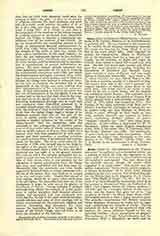

Asser JOHN (or ASSERIUS MENEVENSIS), a learned monk of St. David’s, Menevia, b. in Pembrokeshire; d. probably, 910. He was educated in the monastery of St. David’s by his kinsman, Archbishop Asserius. His repute for learning led King Alfred to invite him to his court (about 885). Asser required six months for consideration. Illness at Winchester led to his remaining there for a year and a half. Finally, on his recovery, as Alfred still urged his request, Asser agreed to spend half of each year with him. His first visit lasted eight months, and Alfred gave him many presents on parting, including the monasteries of Amesbury and Banwell. Later, Asser received a grant of Exeter, and was made Bishop of Sherborne, before 900. Asser wrote a life of Alfred (Annales rer. gent. Alfredi Magni) in 893. The work in question consists of a chronicle of English history from 849 to 887, and a personal and original narrative of Alfred’s career down to the latter date. The Welsh birth of the author is indicated by his use of Celtic names, and the English are constantly styled Saxons. The authentic work of Asser is found only in the edition of Francis Wise (1722), printed from a tenth-century Cottonian MS. (Otho A, XII) which was burned in 1731. The burning of the cakes, references to St. Neot, and to Alfred’s founding the University of Oxford are not in Asser’s work, nor does Florence of Worcester allude to them, although he drew freely on that work, without, however, any mention of Asser’s name. Archbishop Parker’s edition of Asser’s “Annales” presents the “Life” with many interpolations. resents edition is announced by W. H. Stevenson. There are three English translations (Giles, 1848; J. Stevenson, 1854; E. Conybeare, 1900. See Gross, “Sources”, etc., 180). The authenticity of Asser’s book has been called into question. Pauli discusses the subject very thoroughly in the introduction to his “King Alfred” (Berlin, 1851). See T. D. Hardy, in the introduction to Petrie (London, 1848).
JOHN J. A’ BECKET

